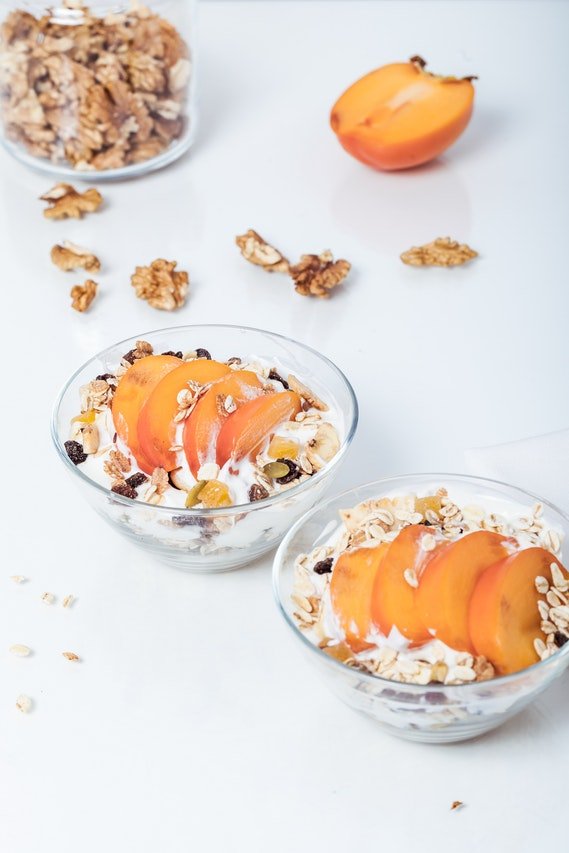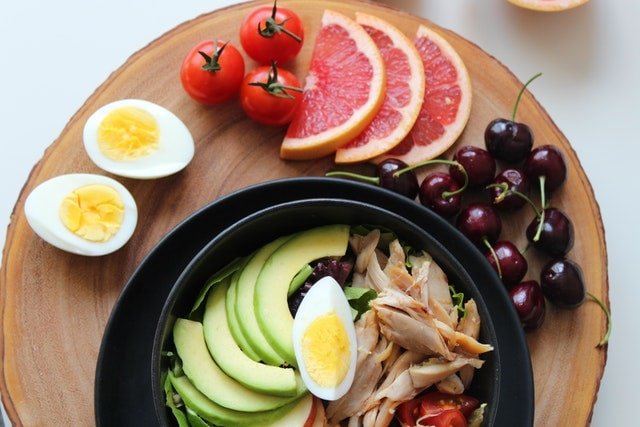Maintaining healthy bones is crucial for our overall health and well-being. Our bones provide support and structure to our body, allow us to move and perform daily activities, and protect vital organs. A diet rich in nutrients that support bone health can help prevent conditions such as osteoporosis, fractures, and osteopenia. In this post, we’ll explore the top foods to eat for healthy bones.
Calcium-Rich Foods:
Calcium is a critical mineral for bone health, and a diet rich in calcium can help build and maintain strong bones. Some of the best sources of calcium include:
- Dairy Products: Milk, cheese, and yogurt are excellent sources of calcium. Look for low-fat or fat-free options to keep your calorie intake in check.
- Leafy Greens: Collard greens, kale, spinach, and broccoli are all rich in calcium. Try adding them to salads, smoothies, or sautéing them with garlic for a tasty side dish.
- Nuts and Seeds: Almonds, sesame seeds, and chia seeds are all high in calcium. Sprinkle them on salads or oatmeal for added crunch and nutrition.
- Tofu and Fortified Plant-Based Milks: If you’re following a plant-based diet, you can still get your calcium fix from tofu, fortified plant-based milks, and calcium-set tofu.
Vitamin D-Rich Foods:
Vitamin D is essential for calcium absorption, so it’s important to consume foods rich in vitamin D alongside calcium-rich foods. Here are some of the best sources of vitamin D:
- Fatty Fish: Fatty fish like salmon, tuna, and mackerel are excellent sources of vitamin D. Grill, bake, or poach them for a healthy and delicious meal.
- Fortified Dairy Products: Look for dairy products fortified with vitamin D, such as milk, cheese, and yogurt.
- Mushrooms: Certain types of mushrooms, like shiitake and portobello, are a good source of vitamin D. Add them to stir-fries, salads, or enjoy them as a meat substitute.
- Egg Yolks: Egg yolks are a good source of vitamin D. Enjoy them scrambled, over easy, or in an omelette.
Protein-Rich Foods:
Protein is essential for building and repairing bones. Here are some of the best protein-rich foods for healthy bones:
- Lean Meats: Choose lean meats like chicken, turkey, and beef to get your protein fix. Opt for grass-fed or pasture-raised options for better nutrition.
- Fish: Fish like salmon, tuna, and tilapia are not only rich in protein but also omega-3 fatty acids, which can help reduce inflammation.
- Eggs: Eggs are an excellent source of protein and other essential nutrients like vitamin D and B vitamins.
- Legumes: Beans, lentils, and chickpeas are all high in protein and fiber, making them a great plant-based option.
- Nuts and Seeds: Almonds, sesame seeds, and chia seeds are all high in protein and healthy fats. Enjoy them as a snack or add them to salads and oatmeal.
Other Nutrients for Bone Health:
While calcium, vitamin D, and protein are the most critical nutrients for bone health, other nutrients can also play a role. Here are some additional nutrients to include in your diet:
- Vitamin K: Vitamin K helps regulate bone mineral density. Find it in leafy greens, such as spinach, kale, and collard greens.
- Vitamin C: Vitamin C is essential for the formation of collagen, a protein that gives structure to bones. Find it in citrus fruits, berries, and bell peppers.
- Omega-3 fatty acids: Omega-3s can help reduce inflammation, which can promote bone health. Find them in fatty fish, flaxseeds, and walnuts.
- Magnesium: Magnesium helps regulate calcium levels in the body and can promote bone health. Find it in dark leafy greens, nuts, and whole grains.
- Potassium: Potassium can help regulate calcium levels in the body and promote bone health. Find it in bananas, avocados, and sweet potatoes.
Foods to Avoid:
- Processed foods: Processed foods are often high in sugar, salt, and unhealthy fats, which can be detrimental to bone health. Try to limit your intake of packaged snacks, frozen meals, and fast food.
- Sugary drinks: Sugary drinks like soda and sports drinks can lead to a decrease in bone density, especially in older adults. Opt for water or unsweetened tea instead.
- Caffeine: Excessive caffeine consumption can lead to a decrease in bone density, especially in older adults. Try to limit your intake to no more than 2-3 cups of coffee per day.
- Alcohol: Excessive alcohol consumption can lead to a decrease in bone density and an increased risk of osteoporosis. Limit your intake to moderate levels (1 drink per day for women, 2 drinks per day for men).
Conclusion:
Maintaining healthy bones is a lifelong process, and a balanced diet is essential for keeping your bones strong and healthy. Incorporate foods rich in calcium, vitamin D, protein, and other essential nutrients into your diet, and limit your intake of processed foods, sugary drinks, caffeine, and alcohol. By taking care of your bones now, you can reduce your risk of osteoporosis and fractures later in life.



